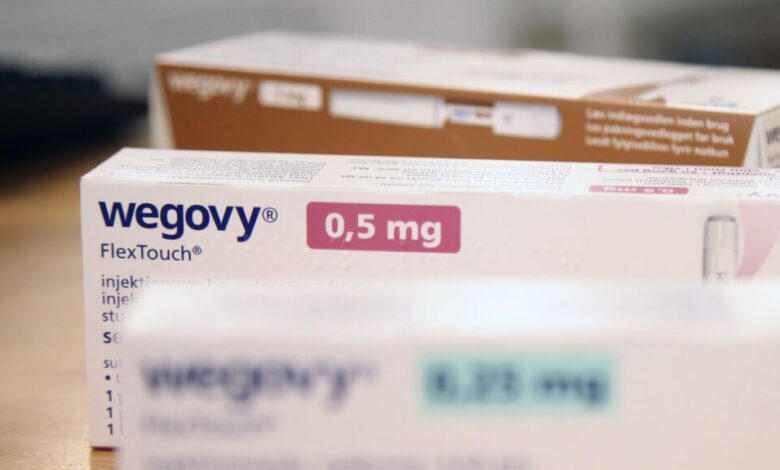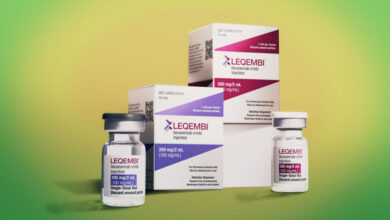Sanofi, Novavax, Maze x Shionogi news

Want to stay on top of the science and politics driving biotech today? Sign up to get our biotech newsletter in your inbox.
Hi all. Today we’re talking about improving the global reach of gene therapies, and about why offering access to ancestral populations could be so powerful. We see in a KFF survey that a majority of Americans want obesity drugs to be covered by Medicare, offer up a cool new podcast, and more.
The need-to-know this morning
- Sanofi reached a licensing deal to sell Novavax’s Covid shot going forward as well as to try to combine the vaccine with Sanofi’s own flu shot. The pact includes a $500 million upfront payment, with up to $700 million in future payments if regulatory and launch milestones are achieved.
- Maze Therapeutics and the Japanese drugmaker Shionogi announced a global licensing deal for Maze’s experimental treatment for Pompe disease. The transaction, which includes a $150 million payment from Shionogi to Maze, was completed months after a Sanofi partnership for the same Maze drug was terminated due to opposition from U.S. antitrust regulators.
Improving global access to gene therapies
Gene therapies can be potent, but they’re really only available to a narrow slice of the global populace. Some scientists are looking at ways to broaden access around the world to these costly treatments; earlier this week, a Science Translational Medicine editorial outlined the challenges to making it all happen.
STAT’s Jason Mast chatted with co-author Jennifer Adair, who is developing scalable, low-cost gene therapies at Fred Hutchinson Cancer Center and helped found the Global Gene Therapy Initiative.
Adair emphasized that considering genetic diversity, and targeting ancestral populations in places like Africa, is critical to making potent — and accessible — gene therapies.
“Gene therapy not only can do better and should do better — our entire field is based on the genetics of humans and leveraging that for human health,” she said. “And if you want to make a drug that works, that is based on genetics, it ought to be considering the most ancestral population. So we have an obligation to do better and do it better very quickly.”
The public wants Medicare to cover obesity drugs
From Elaine Chen: Medicare is currently barred from covering drugs for weight losses purposes, but a majority of the public thinks that should change, according to a new poll by health policy research organization KFF.
Roughly 61% of adults say they think Medicare should cover these medications, including 66% of Democrats and 55% of Republicans, according to the poll, which was conducted in late April and surveyed 1,479 adults.
Novo Nordisk’s obesity drug Wegovy was recently approved to prevent cardiovascular complications, so Medicare can cover the drug for that usage, but still not for weight loss purposes. Legislators have proposed a bill that would allow Medicare to cover treatments for weight loss, but it’s stalling in Congress, in part due to the high anticipated cost to the government.
The poll also found that GLP-1s for diabetes and obesity are widely used. About 12% of adults, or one in eight, say they have taken a GLP-1 drug at one point in time, including 6% who say they’re currently taking one. More specifically 43% of adults who have been told by a doctor that they have diabetes report having taken these drugs, while the percentage for adults who have been told they’re overweight or obese is smaller, at 22%.
Everything you need to know about H5N1 bird flu
What happens when a common virus jumps from birds to cows? And should we be concerned?
This week on “The Readout LOUD,” STAT senior infectious diseases reporter Helen Branswell walks us through ongoing H5N1 outbreak in the U.S. and issues with monitoring the spread. It’s also Pulitzer week at “The Readout LOUD”! In a bit of shameless self-promotion, we’ll talk to our colleagues Bob Herman and Casey Ross about being named Pulitzer finalists in investigative reporting for their reporting on United Healthcare’s use of algorithms in coverage decisions. We’ll hear what’s happened since their explosive work was published last year.
Why Exact Sciences’ stock paradoxically dropped
Shares in Exact Sciences plunged this week, despite the company having beaten market expectations in the first quarter. That’s because there’s concern that growth may slow at the $10 billion company, STAT’s Jonathan Wosen writes. Exact’s flagship product is Cologuard, a colon cancer screening test that achieved FDA clearance in 2014. Next year, the company expects to release an updated version of this test, which shows a higher sensitivity and specificity.
While colonoscopies remain the more reliable tool to screen for colon cancer, Cologuard is considered a handy runner-up. But liquid biopsy players like Guardant Health are creeping into the equation, and may change the landscape for cancer screening. Exact Sciences acquired its own liquid biopsy company, Thrive, in 2020 for about $2 billion.
More reads
- Cytokinetics set to pitch its heart drug to physicians — and Big Pharma suitors, STAT
- Merck’s endometrial cancer therapy fails in trial, Reuters
- Moderna’s first vaccine was a big hit. Its second is a let down, Bloomberg
- Novo Nordisk, Flagship’s Metaphone launch obesity collaboration, Genetic Engineering & Biotechnology News



